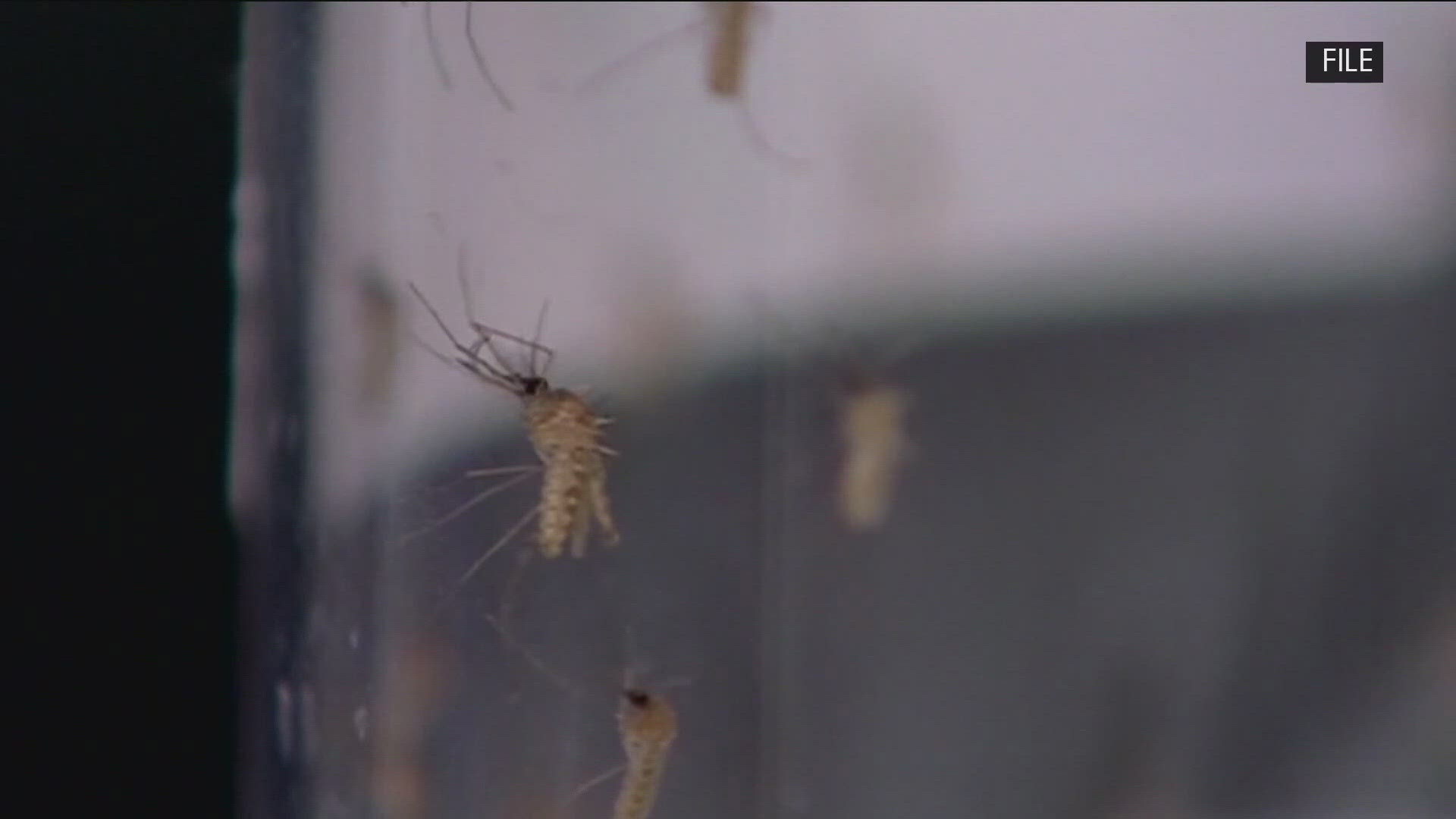TOLEDO, Ohio —
April showers are bringing May mosquitoes. WTOL 11's meteorologists have reported record rainfall in the month of April, as it is the wettest April on record.
With the moisture and standing water, there are also a lot of mosquitoes.
"Right now, nuisance mosquitoes are really high," said Jacob Sublett, biologist for Toledo Area Sanitary District.
Sublett said as of right now, the annoyance level is at a medium. To help reduce the bugs, the sanitary district has started nighttime fogging, which will only happen in areas where it has been determined that mosquitoes pose a high annoyance level or where there are a lot of reports. It uses ultra-low volume technology, which specifically targets the bugs' bodies.
Sublett said although people may be concerned about the chemicals used, they all meet certain regulations.
"Everything that we utilize here at TASD has been vetted through the EPA registration process, so it's all registered through the EPA," Sublett said. "The products we utilized are meant to target mosquitoes at the time of application."
Dr. Deepti Avasthi, a primary care physician for Mercy Health, said the doses used are not toxic to humans or pets. The chemicals could pose a risk to other insects, like bees.
Some companies, like Mosquito Joe, have started using natural alternatives. Owner Judy Baumgartner said the company offers botanical oils that the bugs don't like.
The TASD can also help remove standing water from backyards. Baumgartner said one capful of water can hold 300-500 mosquito eggs.
Mosquitoes can carry viruses, like the West Nile Virus; the TASD monitors the bugs in the area to see if the virus is present.
Avasthi said although it is serious, the chances of infection are really low. She said bacterial infections from bites are something to monitor, though.
If a bite starts increasing in size, swells or becomes painful she said people may have to put topical antibiotics on top of the bite.
To help avoid bites, Avasthi said people can wear long sleeves or use sprays.
If there is a lot of standing water in an area or a lot of mosquitoes, you can request the TASD to come out. There is also a map on its website showing when and where spraying will happen.
Editor's note: This story has been updated to correct the spelling of a name.

